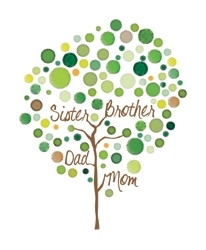Physicians have long recognized that the same disease can behave differently from one patient to another, and that there is no one-size-fits-all treatment.
In cancer, chemotherapy might dramatically shrink one lung tumor but prove ineffective against the same type of tumor in a different patient – even though tissue samples look identical under the microscope. Side effects and appropriate dosage may vary from patient to patient as well.
The goal of personalized medicine is to match a treatment to the unique characteristics of an individual patient: his or her personal and family medical history, age, body size, and other physical characteristics, and medical test results. But fundamentally, it is the DNA blueprint within cells that strongly influences a person’s risks of disease, how illnesses play out, which drugs are likely to be most effective and with the fewest side effects. This is where the newest phase of personalized medicine is heading.
Read more

 If your son or daughter has been diagnosed with a type of
If your son or daughter has been diagnosed with a type of